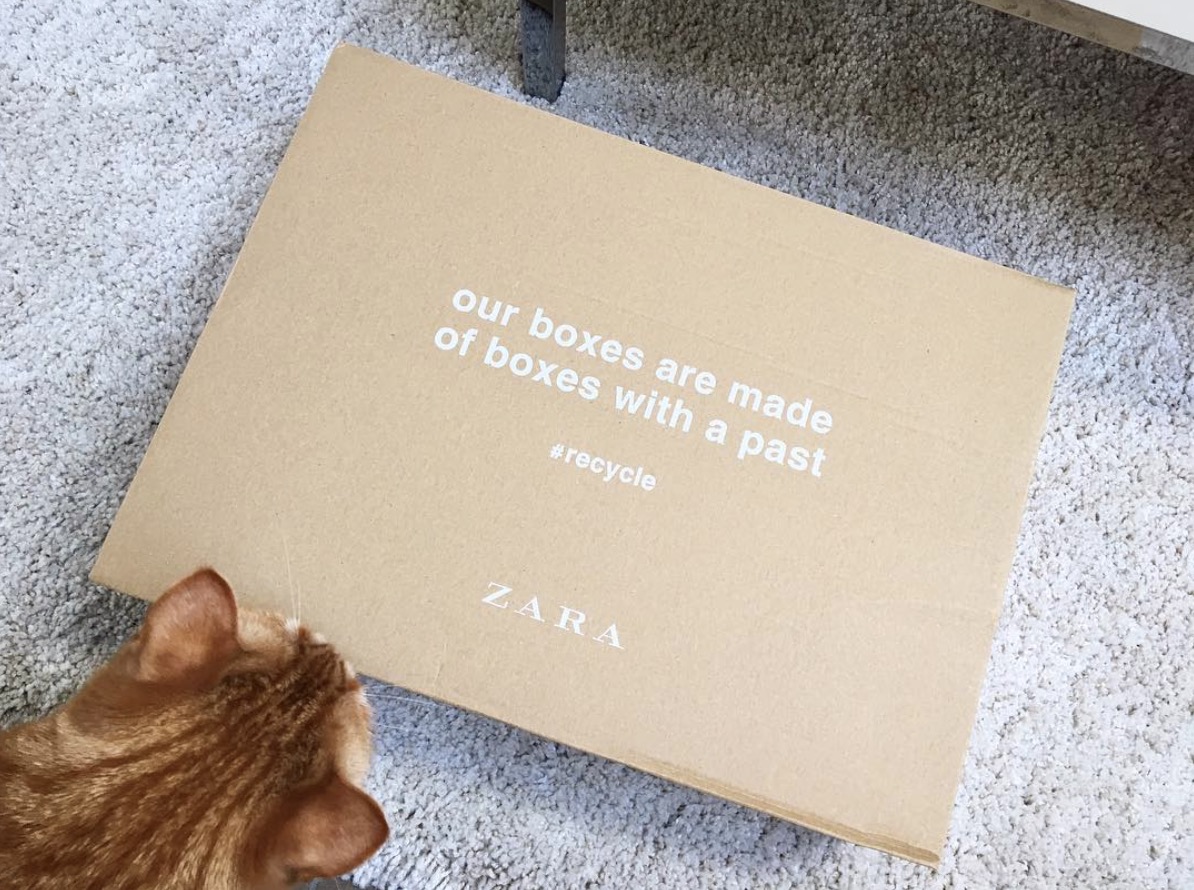Fast fashion staple brand Zara is following the lead of H&M by pledging to make its clothing sustainable in the not-to-distant future.
Last month, the Spanish retail giant’s parent company, Inditex announced that by 2025, all of the cotton, linen, and polyester used to make its clothing will be organic, sustainable, or recycled, and that all viscose will be sustainably produced by 2023.

The announcement was made at the company’s annual meeting in July, and the initiative will also include Inditex’s other brands; Zara Home, Bershka, Massimo Dutti, and Pull & Bear. Inditex has close to 7,500 stores worldwide, but Zara is the company’s largest brand, generating 70 per cent of its sales.
By 2023, Inditex will also say goodbye to fibres sourced from endangered forests, and will stop releasing toxic chemicals at any of its supply chain by 2020 via a partnership with Zero Discharge of Hazardous Chemicals.

This, of course, is all positive news for the retail giant – and a move that could win back customers to Zara stores. Zara has come under fire in recent years for everything from its sub-par sweatshop conditions, to controversial clothing deemed as racist (more than once).
Controversy aside, as the harsh environmental realities of fast fashion are exposed, and shoppers are seeking wardrobe items with a longer shelf or closet life than that of a typical trend-of-the-minute finds housed in sprawling Zara stores.

Inditex’s progressive (and some may say, overdue) goals are in addition to other new green initiatives from the company, like making all stores eco-efficient by the end of the year, with a focus on reducing carbon emissions, saving energy and minimizing waste.
Zara also stated that it would like 80 per cent of the energy used to power its stores, offices and distribution centres to be clean by 2025.
While Zara has already ditched plastic bags, Inditex has plans to phase them out at all of its stores by 2020. Making up for years of lost time, the company has also committed to produce zero landfill waste in all of its facilities.
View this post on Instagram
“Our digital transformation and determined progress towards the most demanding sustainability standards are complementary and underpinned by the efficiency of our long-standing business model, which is based on offering our customers the best in quality fashion,” said Pablo Isla, chairman and CEO of Inditex. “Sustainability is a never-ending task in which everyone here at Inditex is involved and in which we are successfully engaging all of our suppliers; we aspire to playing a transformational role in the industry.”
While Zara isn’t a pioneer in the sustainable fashion game, its focus on greener fashion isn’t newfound.
Taking a cue from longtime competitor H&M, Zara first launched a sustainable collection, Join Life, in September 2016. The collection of largely androgynous clothing was made of materials like organic cotton and recycled wool.
That same year, Zara committed to a shift toward only using boxes made from 100 per cent recycled cardboard.

Furthermore, customers can drop off used clothing, shoes, and accessories in more than 1,300 Zara stores, and the company also partners with the Red Cross to donate leftover stock.
An on-going initiative with the Massachusetts Institute of Technology (MIT) explores forward-thinking new ways to recycle fabrics.
Meanwhile, H&M released its most sustainable collection to date this past spring which features 48 pieces made from plant-based fabrics. Think; jackets created from pineapple leather and blouses made from orange peels.
When it comes to using only 100 per cent sustainably sourced, organic and recycled materials, however, Zara now plans to beat H&M to the punch.
View this post on Instagram
This past spring, H&M announced a commitment to a long-term goal of using only 100% sustainably sourced, organic, or recycled materials by 2030 – five years after Zara plans to do so.
Featured Image: Instagram/@kaffeden
Articles You May Be Interested In:
One Zara Dress Is So Popular That It Has Its Own Instagram Account — And It’s Under $100
11 Secrets About Zara Revealed By Former Employees
The 9 Best Designer Dupes From Zara Under $200
A Fast Fashion Brand Is Trying To Make Up For Lost Time
6 Women On The Fast Fashion Pieces That Stood The Test Of Time
